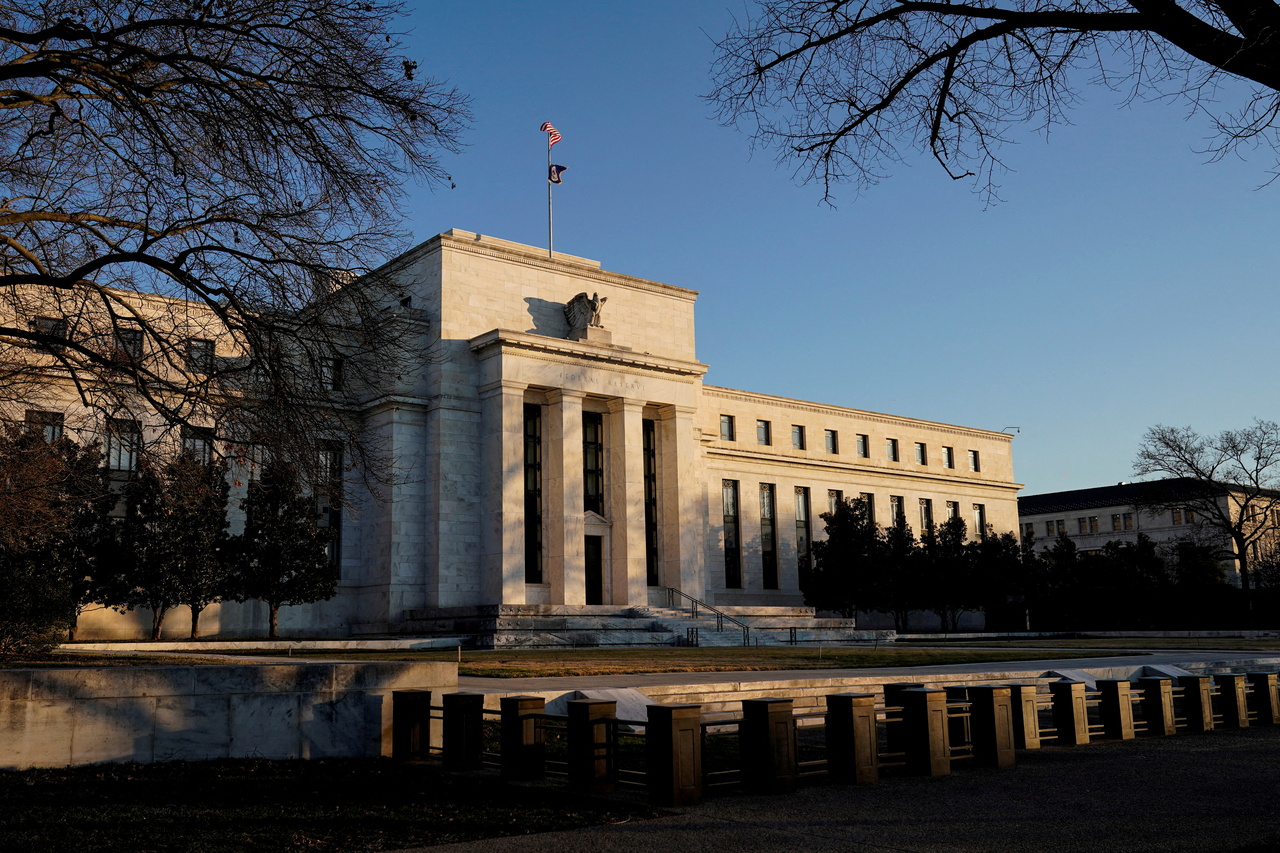Just stop! Investors want Fed to quit buying bonds now to counter soaring inflation
Sign up now: Get ST's newsletters delivered to your inbox

While the Fed has reduced the amount of Treasuries and mortgage-backed securities each month, it is still making purchases.
PHOTO: REUTERS
NEW YORK (REUTERS) - The United States Federal Reserve should stop buying bonds immediately to contain rampant inflation, a top investment manager at BlackRock said on Thursday (Feb 10), joining a chorus of Wall Street heavy hitters and investors who have been calling for swifter Fed action to contain rising prices.
US consumer prices rose solidly in January, leading to the biggest annual increase in inflation in 40 years and fuelling market expectations that the Fed may increase rates more aggressively than anticipated to cool the economy.
As it seeks to contain inflation, the US central bank also plans to reduce its nearly US$9 trillion (S$12 trillion) balance sheet, which grew in size during the Covid-19 pandemic as the Fed bought bonds in the market to support the economy.
After the pandemic-triggered recession, the Fed was buying US$120 billion in Treasuries and mortgage-backed securities each month. While it has reduced that amount, it is still making purchases.
At the latest meeting, the Fed said that beginning February, it would increase holdings of Treasury securities by at least US$20 billion a month and mortgage backed securities by at least US$10 billion a month, and would bring those purchases to an end in early March.
"The Fed is still infusing the system with QE through the middle part of March", said Mr Rick Rieder, BlackRock's chief investment officer of global fixed income, referring to quantitative easing - the Fed's bond-buying programme.
"The Fed needs to react and address today's high levels of inflation and end QE now," Mr Rieder said in a note, after the publication on Thursday of higher-than-anticipated January inflation data.
The benchmark 10-year US Treasury yield hit 2 per cent on Thursday for the first time since August 2019 after the inflation reading.
'Inconsistent'
Morgan Stanley chief executive James Gorman said last December the Fed should have moved "quicker rather than later" in the transition to a rising interest-rate environment.
Wells Fargo CEO Charlie Scharf also said that month the Fed needed to potentially move quicker to address inflation concerns.
Investors have voiced similar concerns regarding the Fed's speed of action.
Ms Sonal Desai, chief investment officer of Franklin Templeton Fixed Income, said the Fed missed an opportunity in January when it announced plans to hike rates and reduce its balance sheet while continuing to buy bonds until March.
"They continue to expand that balance sheet after acknowledging that they don't need to do this anymore", she told Reuters last month.
"They recognise inflation is a problem, however, they're still going to expand monetary policy... to me, that seems internally inconsistent", she added.
While the Fed's response to the pandemic has been "heroic", Mr Rieder said, it was now time to move swiftly to a neutral policy stance, avoiding at the same time a too restrictive tightening of monetary policies.
"We think policy needs to adjust quickly, but not necessarily too much in total amount as the Fed weighs data over time, since this would create significant risk for markets and the economy," he said.


